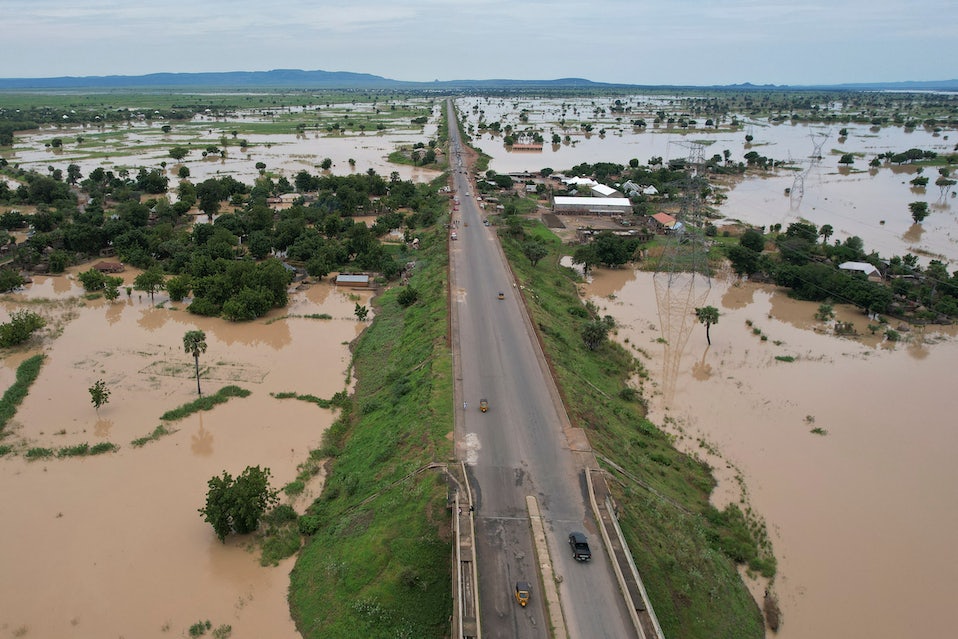Nigerian farmers say they are expecting poor harvests this year after heavier than average rains pummeled crops and brought widespread floods.
The flooding is affecting most of Nigeria’s states and other countries in the region killing hundreds.
Celina Gowan has been farming her 5 hectares of land in Abuja for over 20 years. After this week’s overnight heavy rain, she woke to find water coursing across her land.
With her farm divided by the water and many crops ruined, she fears the money she has invested this year will be lost.
Many consumers at this market complain of the rise in goods’ prices as well as the low quality of produce.
The floods have blocked or washed away roads, and transporting produce to markets now takes longer and costs more money than ever. Farmers say 20 percent of their goods gets spoiled on the road.
Nigeria has recorded at least 600 deaths while in neighboring Niger authorities say at least 192 people have died there as the result of storms, either from homes collapsing or from drowning in flood waters.
Experts point to unusual rainfalls and the failure of governments to set up early warning systems to better prepare for climate extremes.
The floods in West Africa are “majorly due to government negligence to environmental related issues like climate change over a period of time,” said Ibrahim Raji, a climate researcher focusing on the region. The situation “boils down to the government’s reluctance to address environmental issues,” Raji added.
Chi Lael, a spokeswoman for the U.N. World Food Program in Nigeria, is concerned about the “worrying harvest season ahead.”
Some farmers have lost close to 75 percent of everything planted this year, said Kabir Ibrahim, national president of the local farmers association.
The damage caused by the floods in Nigeria also extends to livestock in areas like Bayelsa state, where Innocent Aluu said he lost nearly 10,000 fowl in his poultry to the floods, most of them dying from waterborne diseases.
In Nigeria, WFP said it is providing emergency assistance in the state of Yobe, one of the hardest-hit places. But the agency urgently needs $129 million to support its operations in Nigeria over the next five months, its spokeswoman said.
 موقع وجه أفريقيا موقع وجه أفريقيا هو موقع مهتم بمتابعة التطورات في القارة الأفريقية
موقع وجه أفريقيا موقع وجه أفريقيا هو موقع مهتم بمتابعة التطورات في القارة الأفريقية



